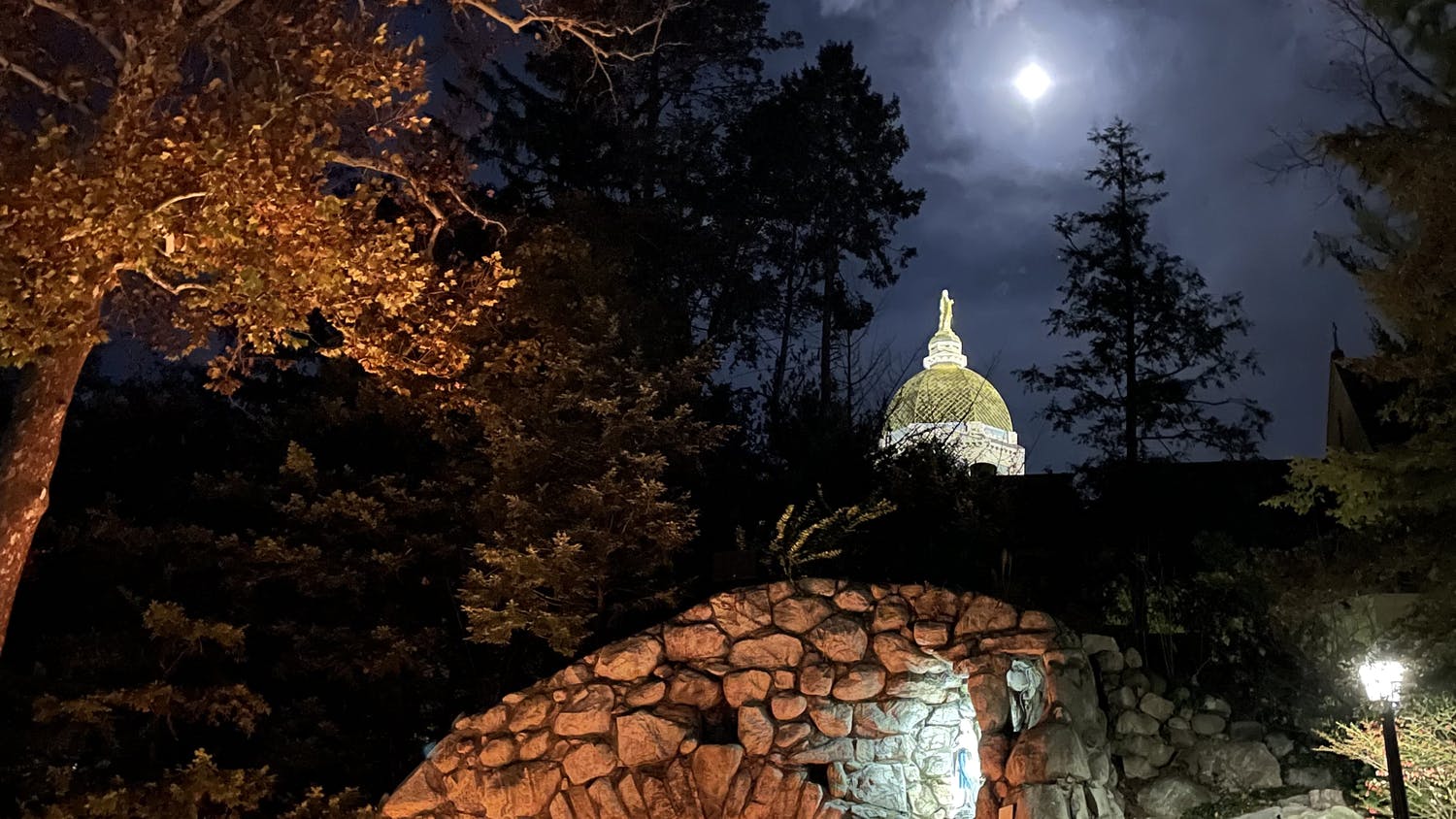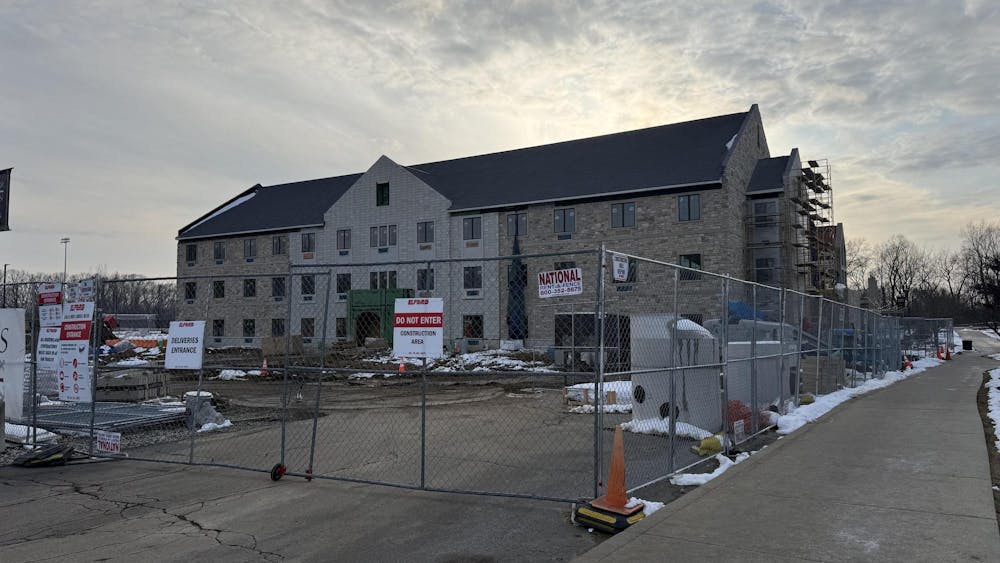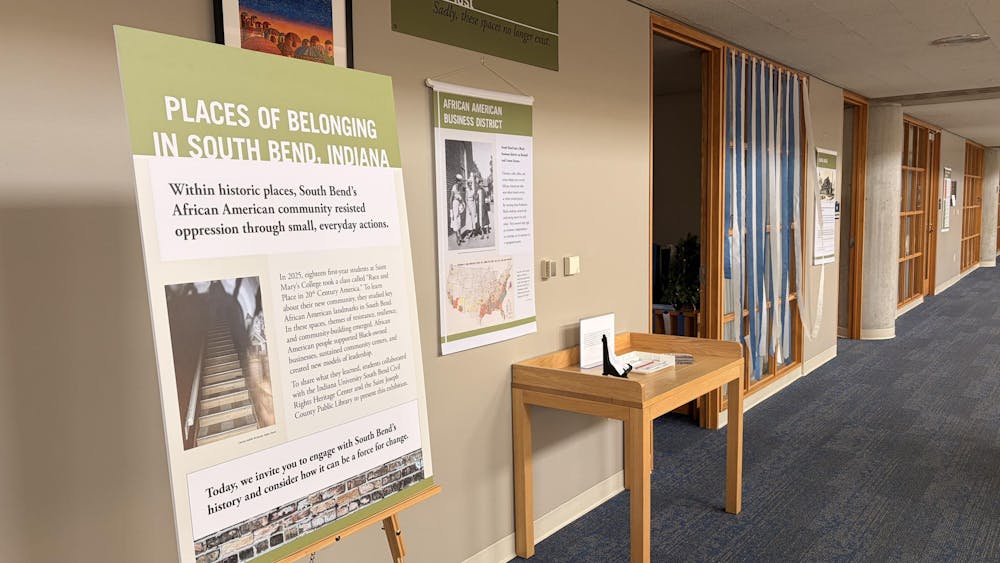
On Friday night, the beginning of the month of Ramadan was announced based on the sighting of the new moon. Earlier in the day, professor Mahan Mirza emphasized the spiritual importance of the month in a sermon delivered during Friday prayers to Muslim members of the Notre Dame community.
Ramadan, the ninth month of the Islamic lunar calendar, is marked by daily fasting from water and food. The fasts last from before sunrise to sunset, which means that for tri-campus students, the first fast lasted approximately 14 hours and 20 minutes. The fasting period will gradually increase to about 15 hours and 45 minutes at the end of the month.
Mirza, the executive director of the Ansari Institute for Global Engagement with Religion and a professor in the Keough School of Global Affairs, says that the fasting for Ramadan is a central element of the Muslim faith.
The observance of Ramadan “is one of the five pillars of Islam,” Mirza said, Ramadan is “a spiritual reboot or a spiritual bootcamp.”
Mirza explained that for Muslims, the fasting and other acts of devotion — including voluntary nighttime prayers and additional focus on reading the Qur'an — are meant to increase followers’ consciousness of God.
“[Fasting] can be taxing for those who want to eat, especially if they like to snack or get their coffee, so you have to abstain from all of that. And the idea is to be mindful of God and to generate an inner capacity of self-restraint, for the sake of God,” he explained. “That's something that should guide you throughout your life, the rest of the year, but people drift, and so every year Ramadan kind of pulls you back.”
Mirza said around the world, Muslims participate in Ramadan as a communal activity.
“If you're in the Muslim world, you experience that with the whole community, the whole society participates in a different rhythm,” Mirza said.
On campus, however, Muslims are a small minority and experience a different environment while fasting away from home.
First-year Abulrahman Atassi, who resides in Keenan Hall and studies chemical engineering, recalled his childhood in Dubai observing the month along with his family.
“It was great. In the morning, your mom comes to wake you up, and then you eat something and perform the morning prayer,” he said.
Atassi said that while he’s enjoyed his first Ramadan on campus, it’s difficult to balance the spiritual devotion that the month brings with his rigorous schedule. At home, he said, things such as congregating for prayer and the recitation of the Qur’an are ubiquitous. He also says the month coinciding with Lent has provided connections to the Catholic identity of the University.
"You'll find that there are definitely some similarities with Lent. Both are fasting and, you know, trying to develop discipline and consciousness," Atassi said.
Along with being a practicing Muslim, Atassi is also the vice president of the Muslim Student Association (MSA). The MSA worked with Campus Dining in order to ensure Muslim students were receiving sufficient meals.
Each day, Atassi explained that students have the option to grab meal boxes for dinner, prepared with halal meat and poultry, and brown bags for the pre-dawn breakfast, called ‘suhoor.’ This is especially necessary on the weekends, when the dining halls close more than an hour before the sun sets.
“They've offered us a great menu. They've made a variety of different dishes,” Atassi said. “They've put dates and water in the bag, which are things that you usually break your fast with. They've just been very accommodating and welcoming to students.”
The MSA has also organized nightly ‘tarawih’ prayers, which are a special set of prayers offered by Muslims during Ramadan. They’ve been held in various locations, including the multi-faith prayer room in the Coleman-Morse Center and Keenan Hall’s basement.
Mirza spoke to the benefits of having prayer spaces on campus.
“The administration has been very receptive and hospitable, just the existence of at least two prayer rooms on campus that have ablution facilities. Muslims need to perform a ritual ablution before the [five daily] ritual prayers, and most of us have a very hard time doing that in other institutions, where you might have to use public sinks,” he said.
On campus, Muslims have access to prayer rooms in Jenkins Hall, Coleman-Morse Center and the Law Library.
Mirza stressed that members of the community should do their best to accommodate fasting students, while they try to balance limited sleep and the lack of nourishment throughout the day.
“The best thing is to be aware that this is happening. If there's a teacher, they can maybe work with the student to think of exam times or, when something is due, show a little bit of flexibility,” he said.
Atassi said Muslim students are more than happy to share their experiences with others.
“Everyone is open to being asked questions. So if you have any questions, stop any Muslim and ask them, and they'll be more than happy to answer,” he said.
Read More
Trending









